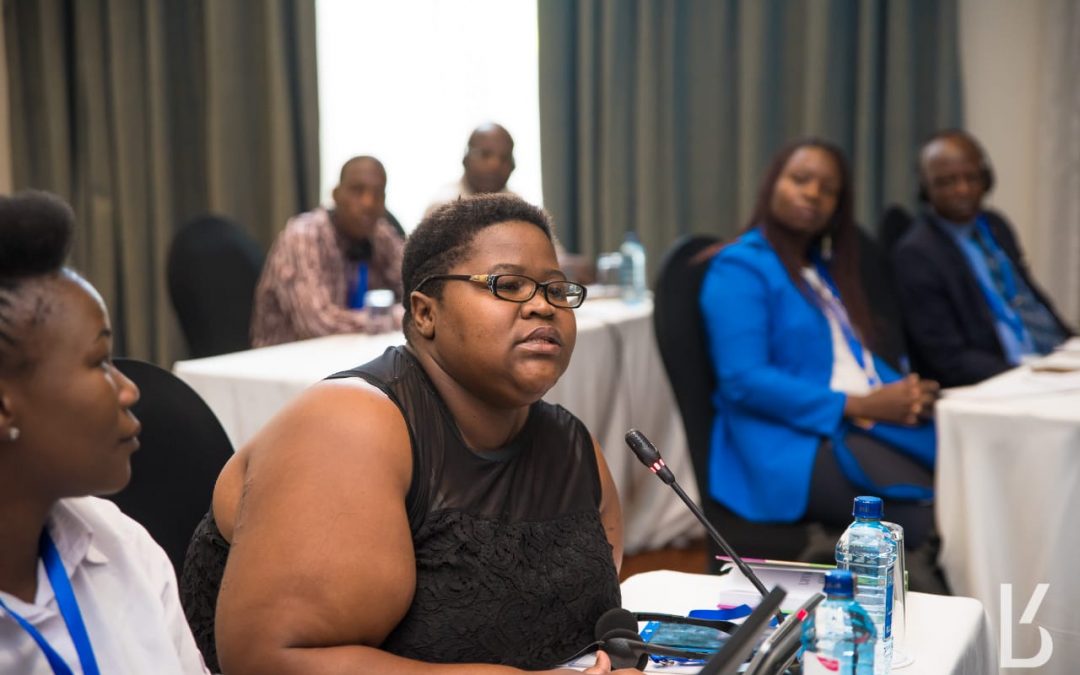Ruth Kedikilwe, a Right By Her journalist champion from Botswana, shares her experience with how the COVID-19 pandemic has affected her work. The Right By Her campaign pushes for improved implementation of continental commitments, specifically the Maputo Protocol and Maputo Plan of Action. The campaign works with champions including young men and women, First Ladies, parliamentarians, journalists, feminists and religious leaders who raise awareness in their circles of influence and push for implementation of policies on gender equality and sexual and reproductive health and rights (SRHR) in Africa.
My name is Ruth Kedikilwe. I am a woman journalist based in Gaborone, Botswana and I have been practicing journalism for the past 14 years.
I am particularly interested in SRHR because, growing up, I saw sexuality vilified by my culture. As young people, we learned about sex and sexuality from each other and from the media. Our parents only spoke about sex and sexuality to instil fear in us and were never to be questioned.
The Right by Her campaign is very close to my heart because issues around sexuality, especially for young women, are swept under the rug in my country. Teenage pregnancies are common and men get away with statutory rape because they either flex some kind of financial muscle or the young girls are unaware that they were violated. What communities lack most in this instance is knowledge and information. Through this campaign, young women across the continent will be able to take responsibility for their sexuality and influence behavioural change in future generations that will ultimately improve the overall relations between men and women, reducing gender-based violence and improving family planning.
Last October, I left fulltime mainstream print journalism to start a media consultancy company specifically aimed at improving reporting on SRHR issues by training journalists on the dos and don’ts. Right By Her has been instrumental in developing training manuals for journalists and communication officers to give them information on how to build a rapport with each other to effectively implement their respective mandates. I am hoping that going forward we will spread across Africa with this mode of operation to attain good coverage on SRHR across the continent.

COVID-19 has tremendously affected my work programme as most of our work entails addressing a large number of people at once and travelling both internally and externally, so our operations have been limited to working online.
From a personal perspective, as a woman, I have had to leave my primary residence to come and stay with my elderly parents as their helpers have been sent home during the lockdown. My brother has not left his primary residence but I had to relocate. Likewise, in most newsrooms, women have been sent home and now men operate the newsroom, which has proven to be quite a challenge to keep women’s voices in the news. Reporting on SRHR has also significantly taken a backseat as the impact of COVID-19 is huge. Here in Botswana, many men are HIV-positive so, for example, the movement restrictions may deter patients from getting their supply of antiretroviral therapy (ART) drugs.
The recommendation I would make to SRHR champions is to keep communication lines open and to continue generating as much information as possible and use as many online platforms to spread the message as far as possible.
*
The Right By Her campaign focusses on four core rights areas: harmful practices (with a focus on FGM and child marriage), HIV & AIDS, gender-based violence against women, and SRHR. Stand with us in the fight for women’s rights – stand #RightByHer.
